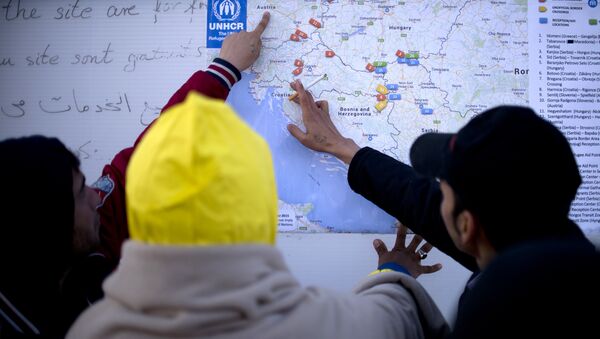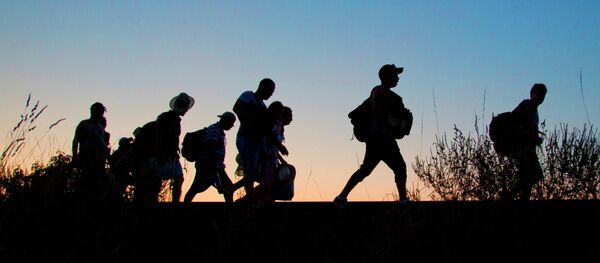Joseph Muscat, Prime Minister of Malta, called for urgent action as he urged European countries to combat the migration of people across sea:
"As things stand, we are building a cemetery within our Mediterranean Sea."
United Nations Secretary-General Ban Ki-moon, called on the international community to "take action to prevent such tragedies in the future."
'Priority to Protect Lives — Not Create a Fortress'
A year later and following another mass drowning of 700 people in the Mediterranean, Amnesty International (AI) launched a campaign calling on the European Union and its member states to protect the lives and rights of refugees and migrants.
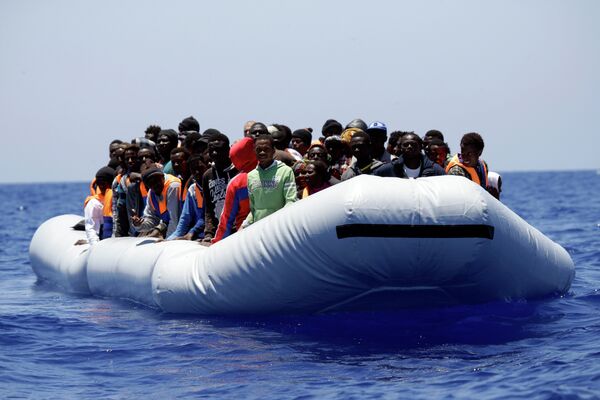
On 16 September 2014, John Daluisen, AI's director for Europe and central Asia said:
"The mounting death toll is a blight on the reputation of the EU and its member states who must urgently act together.
"With hundreds of thousands fleeing war and poverty across the Middle East and Africa, the priority must be to protect lives rather than creating an impenetrable fortress."
The Mediterranean Graveyard
In 2014, more than 207,000 migrants and refugees made the risky Mediterranean crossing to get to Europe — nearly three times the previous highest figure of 70,000 in 2011. Of those, some 3,400 died.

In December 2014, the European Trade Union Confederations (ETUC) denounced the decision of the Italian government and EU institutions to abandon search and rescue missions in the Mediterranean, warning that desperate people willing to risk their lives to escape war and despair, cannot be left to drown.
Luca Visentini, ETUC Confederal Secretary said:
"Rescue cannot be left to the goodwill of passing commercial ships. The EU has a humanitarian duty to save the lives of people fleeing war and poverty."
'Difficult and Sensitive Debate'
During one of the first debates about the migrant crisis in the European Parliament, European Council President Donald Tusk admitted that:
"This is a difficult and sensitive debate. [It] includes full and effective implementation of an asylum system with the same standards in all member states, and an increase in emergency aids and support teams to help process asylum claims."
'Inadequate'
Responding to President Tusk, European Commission President Juncker called the European Council's response to the human tragedy in the Mediterranean "inadequate."
But while European Union leaders bickered over who should be responsible for rescuing migrants from the Mediterranean Sea, refugees were finding new routes to the EU.
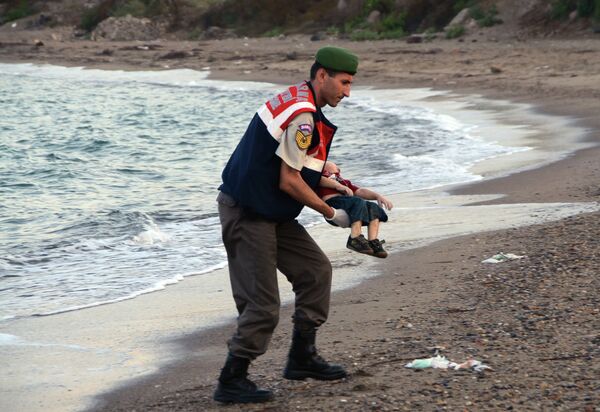
In July 2015, while Europe remained focused on how to stop the number of people dying at sea — the Western Balkan route overtook the Mediterranean to become the busiest irregular passage to the EU.
Refugees were travellng from Turkey to Greece by sea, then overland across Macedonia to Serbia, and into Hungary, but were being pushed back and even physically abused at every border.
'We Are Going to Demand Fair Quotas'
In August 2015, an EU summit was held in Austria on the Western Balkans economic role in the EU. Top of the agenda was how to respond to the refugee crisis gripping Europe.
Following the meeting in Vienna, German Chancellor Angela Merkel announced that Germany would join France, Italy and Greece to push through compulsory quotas for EU countries to share in the responsibility for processing and resettling refugees and asylum seekers.
At the same time the meeting was taking place, Austrian authorities discovered 71 decomposed bodies of 59 men, 8 women and four children cramped in a chicken truck in Austria.
'Shock'
The truck, believed to be Syrian, had traveled through Serbia and Hungary. The vehicle was found abandoned — the driver no longer behind the wheel.
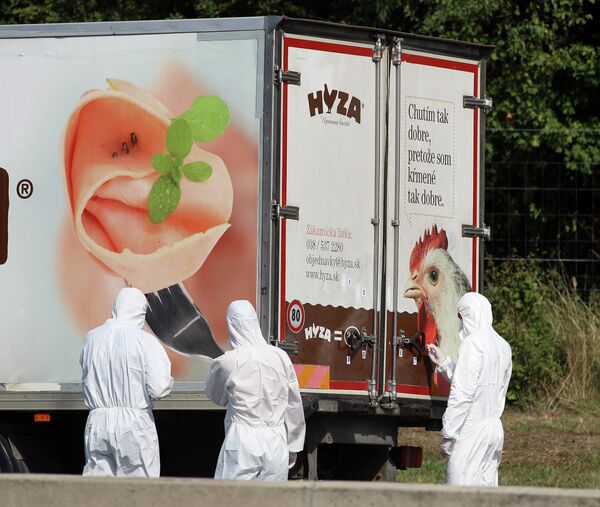
As the grim discovery was revealed to European leaders attending the summit in Vienna, they expressed "shock."
Mrs Merkel said:
"We are of course all shaken by the appalling news. This reminds us that we must tackle quickly the issue of immigration and in a European spirit — that means in a spirit of solidarity — and find solutions."
"We are going to demand fair quotas. Then we will see who rejects those," she said.
And indeed, Hungary, Slovakia, Romania and the Czech Republic rejected the asylum quota system, but were overruled by the European Commission.
What to Do With 'Hundreds of Thousands of These People?'
Nearly a quarter of a million migrants have passed through the Balkans since September and around 9,000 refugees are arriving on Greek shores every day.
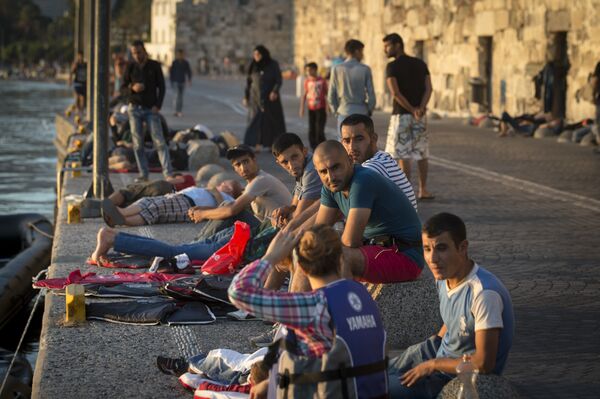
During the latest summit held in October, EU leaders discussed the migrant crisis once again. German Chancellor Angela Merkel said:
"Extraordinarily times demand extraordinary measures."
European President Jean Claude Juncker told leaders:
"The policy of waving through people to neighbouring countries has to stop. I want to be clear: people must be registered. No registration, no rights."
But it still seems not everyone was listening.
Serbian Prime Minister Aleksandar Vucic asked:
"What are we going to do with hundreds of thousands of these people?"
A question the EU has failed to answer time and time again.
'Migrant Crisis'
And a year after Amnesty International's director for Europe and Central Asia, John Daluisen, said "the priority must be to protect lives rather than creating an impenetrable fortress" many Eastern European countries have built walls, erecting razor wire fences, and leaving refugees in no man's land.
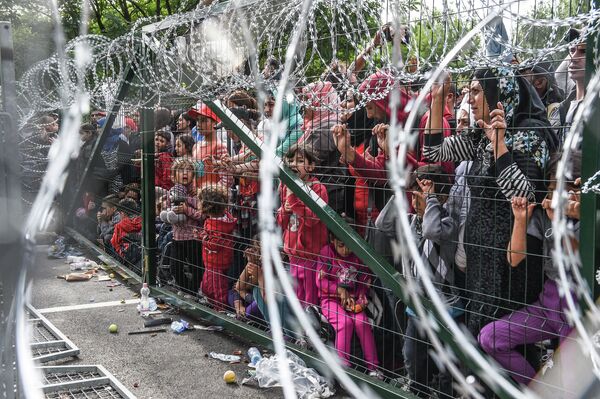
In a statement issued after the latest meeting, Daluisen said:
"The sight of thousands of refugees sleeping rough as they make their way through Europe represents a damning indictment of the European Union's failure to offer a forward thinking and coordinated response to the refugee crisis."
The words "Mediterranean graveyard" have morphed into "migrant crisis", affecting the whole of Europe. Meanwhile, EU leaders continue to meet — but constantly fail to reach a solution.

